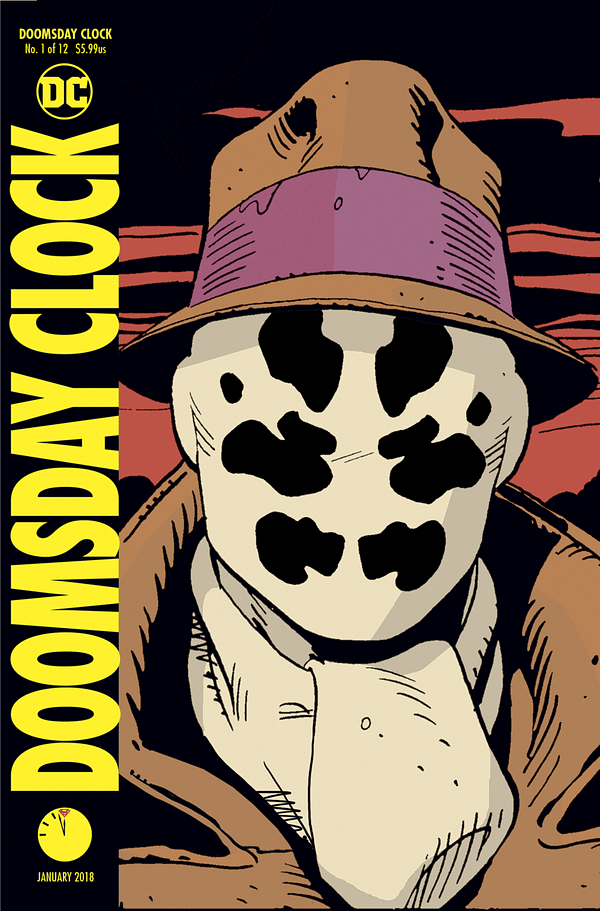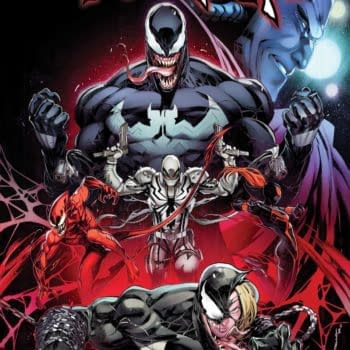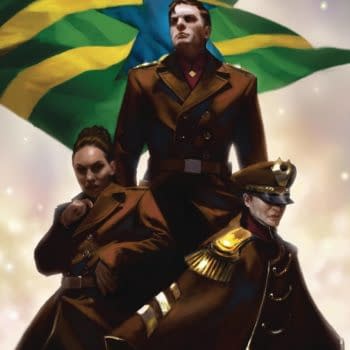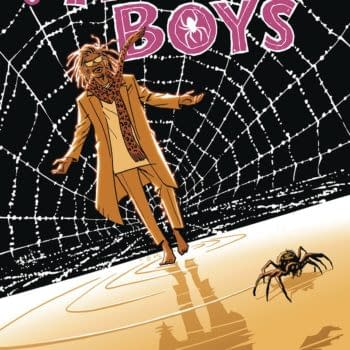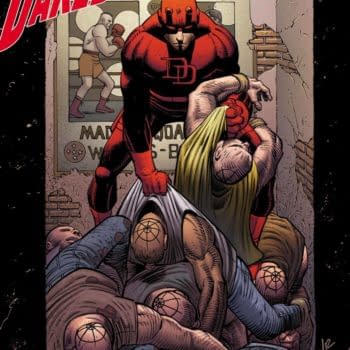Posted in: Comics | Tagged: Comics, HRL
The Morality Of Reading, Writing, And Publishing Doomsday Clock
Tonight sees the publication of Doomsday Clock #1 by Geoff Johns and Gary Frank. You may have seen mention of it on Bleeding Cool, occasionally with a little snark about betrayal and the like. Odds are there will be a lot more to say.
There are lots of people who say it shouldn't exist, as a major act of creative betrayal. There are others who can't see the problem. This is a small attempt to navigate a way through. Chase Magnett wrote a much longer and more comprehensive version over on Comics Bulletin, and I will no doubt echo some of his points — but hope I add a few others into the mix.
Alan Moore and Dave Gibbons pitched Watchmen to DC Comics in 1985, after a number of previous attempts by Moore to pitch a similar series using characters DC owned. But with Gibbons, they created characters, and a world, anew. It was also touted as a creator-owned project in a day when such a thing from Marvel and DC was still a novelty. The contract is believed to assign rights to DC Comics on a temporary basis, and will relinquish them when the comic goes out of print.
The thing is that this was at a time when comics had never stayed in print. Collections were rare, and even those that were published went out of print shortly afterwards. Watchmen was the first DC graphic novel to stay in print. The second was V For Vendetta. The exact same issue applied.
The series came out to acclaim. Then the first indication that DC was playing with the intent of contracts was when a Watchmen button set was released without Moore or Gibbons receiving any royalties for it. Despite being sold at a premium price, DC had decided it was a promotional effort, therefore they did not need to pay royalties.
The original agreements saw everyone very sure about what the contracts meant — creators and executives. But afterwards, suddenly it could be up for far more interpretation than either side originally intended.
As print after print was made of Watchmen, pioneering the trade paperback market for comics, Moore and Gibbons attempted to renegotiate the terms of the contract to reflect the new reality. DC Comics declined to do so, and in classic form, Moore withdrew his labour. He stopped working for them. The man who had written Swamp Thing, Watchmen, V for Vendetta, The Killing Joke, and more… left. The massive crossover event he had pitched (and sold to them), Twilight Of The Superheroes, went unwritten and unpublished. He set up his own publisher, Mad Love, and would then work for other publishers. DC Comics had killed the golden goose.
The original Watchmen deal can be compared to the Writers Guild deal for television — when DVD boxsets came along and changed the TV and film industries, and where the profits were made, studios were unwilling to renegotiate contracts agreed before DVDs were invented. And so the writers went on strike. Eventually the studios capitulated and contracts were renegotiated. DC Comics did not — they had plenty of other writers.
The thing is, none of them were Alan Moore. Moore wrote for Image Comics and was compensated far more for his efforts. And then for Image Comics studio Wildstorm, he created the America's Best Comics line, making a work-for-hire line to get better page rates for the artists.
And DC Comics bought it. This began what Moore sees as a long history of harassment by the publisher, constantly trying to get him to work for them again, when he had no interest. A firewall was set up to keep Moore independent of DC Comics — even his cheques would come from somewhere else. But eventually that fell apart, and when The League Of Extraordinary Gentlemen: The Black Dossier was gutted by DC publisher and president Paul Levitz against, it seemed, the advice of DC's own lawyers, it was too much for Moore. This was also at a time when Warner Bros. was making a V For Vendetta movie that he wanted nothing to do with. In an interview, he stated he wanted his name off the movie and the money sent to artist David Lloyd, that he was withdrawing League Of Extraordinary Gentlemen from DC Comics (this had remained fully creator-owned, as it had been sold as a movie to Fox by Moore and Kevin O'Neill before the Wildstorm deal was agreed), and he was off again.
If it has been perceived that Moore is in a bad mood with DC Comics, much of it is down to their continual attempts to work with him when he has decided he doesn't want to anymore, and using intermediaries to intercede on his behalf. And that's where the stalking allegations come in — DC Comics is, for want of a better term, a "bunny boiler". They won't leave him alone, and he has burnt through a number of relationships with friends whom DC persuaded to talk to Moore on their behalf.
Alan Moore didn't want a movie of Watchmen or a TV series. It was a comic, that was meant to be the point. Done in one, as well; no need for prequels of sequels. That's what he wants, and in all their dealings, that's not what DC wants. And so, while DC has appeared to be more willing to negotiate with Moore as of late, he doesn't want anything to do with them.
Dave Gibbons did a deal for the Before Watchmen prequels, receiving a large sum of money in return for a sentence offering mild support for the project. But when Doomsday Clock came around, he didn't even get an email to let him know. He found out about it on Bleeding Cool.
One other thing is that there are serious questions regarding the validity of the original contract. Moore may not want to pursue any legal action; he had his fill of that with League Of Extraordinary Gentlemen. But one day, he will no longer be with us in his physical form. And whoever maintains his estate may have a different view.
And tonight we will have Doomsday Clock, which will see the characters of Watchmen and DC Comics meet. It seems the very anathema of the intention of the original series. And Bleeding Cool will cover it in depth. What can I say — we are legion, we contain multitudes.
Just know this going in: claim your hypocrisy, your moral weakness, as I will claim mine. And don't blame it on someone else being grouchy as a way to dissonate it all away and make yourself feel better.
Hrm.


